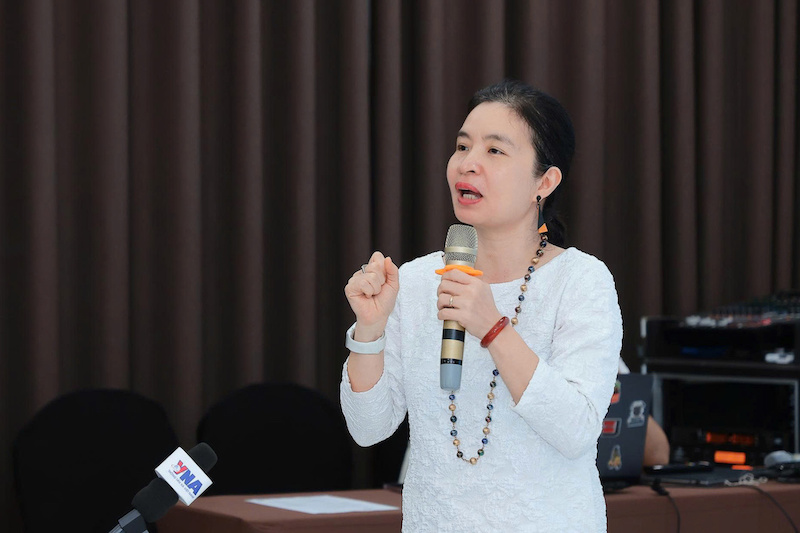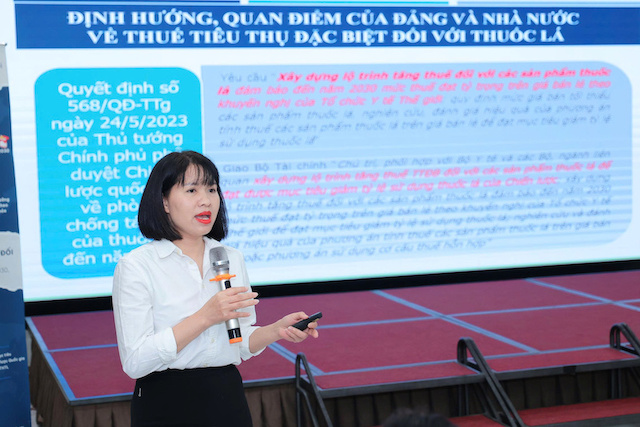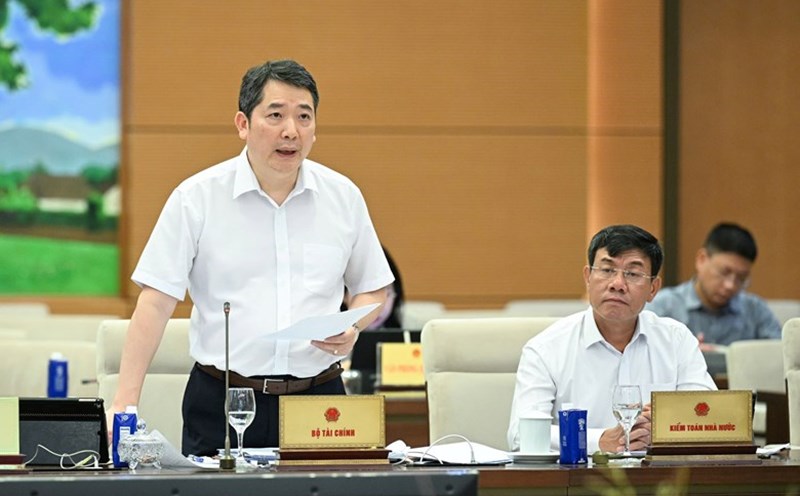A pack of cigarettes is cheaper than a box of milk
On June 3 in Hanoi, the Press Department (Ministry of Culture, Sports and Tourism) coordinated with HealthBridge Canada in Vietnam to organize the Workshop "S autumn Tax and Sustainable Development".
According to Master Dao The Son, an economic expert, tobacco prices in Vietnam are 15th, almost the lowest among 19 countries in the Western Pacific region. The last tobacco tax increase in Vietnam was in 2019, if it was increased by 2026, the gap would be 7 years. If the tobacco tax is increased by 2027, it will be 8 years. It is estimated that this delay will increase the number of smokers to about 2.5 million people.
Another study by the University of Public Health shows that, there are 40 tobacco brands on the market with a retail price of less than 10,000 VND/1 bag and many cigarettes with lower prices. Although over the past decade, the rate of smoking in adult men in Vietnam has decreased, from 47.4% in 2010 to 41.1% in 2021, Vietnam is still among the 15 countries with the highest smoking rate in the world, ranked third in ASEAN.
According to Ths. Nguyen Thi An, Director of HealthBridge Canada in Vietnam, the fact that cigarettes are sold at too cheap prices in Vietnam, even under 10,000 VND/pack, is becoming a major concern.
Compared to the increasing income of people, cigarettes are becoming more and more accessible, increasing the risk of smoking among young people and vulnerable groups in society. She emphasized that tax increase is an effective policy tool to protect public health.
"A pack of cigarettes in Vietnam is only about 10,000 VND, cheaper than a box of milk. Meanwhile, in developed countries, milk is very cheap but cigarettes are very expensive. I think that is also an issue that needs to be considered. Why is healthy food expensive while products that harm human health are cheap and so accessible? We expect increased tobacco taxes to reduce consumption. Reducing consumption will reduce diseases" - Ms. An raised the issue.

Tax increase is a "same-win" measure
MSc. Nguyen Tuan Lam, WHO representative in Vietnam, also affirmed that just increasing tobacco prices by 10% can help reduce consumption by 4% in developed countries and 5% in developing countries, especially among children and the poor.
According to him, increasing taxes is a "same-win" measure, both reducing the burden of disease and increasing budget revenue, while actively contributing to sustainable development goals.
WHO recommends that Vietnam apply a roadmap to increase tobacco taxes from 2026, with a minimum increase of VND 5,000/pack and reaching VND 15,000/pack by 2030.
The goal is to reduce the total tobacco tax to a minimum of 75% of retail price, in accordance with international standards. The combination of absolute tax and rate tax is considered the optimal solution to help control tobacco consumption more effectively and sustainably.

Agreeing with this view, Master Dinh Thi Thu Thuy, Deputy Director of the Legal Department (Ministry of Health) said that the Ministry of Health fully supports the plan to increase the absolute tax from VND 5,000/bag in 2026 to VND 15,000/bag in 2030, combined with a tax rate of 75%.
Analysis from the Ministry of Health shows that this tax rate could help reduce the rate of male smoking to 36% by 2030, while approaching the WHO's recommendation on tobacco tax structure.
In addition, the Ministry of Health also recommends not legalizing new tobacco products such as e-cigarettes and heated tobacco products in the Law on Special Consumption Tax (amended).
This proposal aims to properly implement the spirit of Resolution 173/2024/QH15 of the National Assembly on the ban on the production, trading, transportation and use of new tobacco products to protect the younger generation from the risk of harmful addiction.











